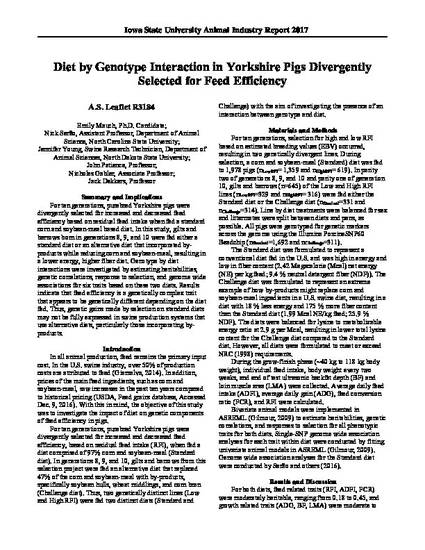
For ten generations, purebred Yorkshire pigs were divergently selected for increased and decreased feed efficiency based on residual feed intake when fed a standard corn and soybean-meal based diet. In this study, gilts and barrows bornin generations 8, 9, and 10were fed either a standard diet or an alternative diet that incorporated by-products while reducing corn and soybean-meal, resultingina lower energy, higher fiber diet. Genotypeby diet interactions were investigatedby estimating heritabilities, genetic correlations, response to selection,and genome wide associations for six traits based on thesetwo diets. Results indicate that feed efficiency is a genetically complex trait that appears to be genetically different depending on the diet fed. Thus, genetic gains made by selection on standard diets may not be fully expressed in swine production systems that use alternative diets, particularly those incorporating by-products.
Available at: http://works.bepress.com/john-patience/19/
